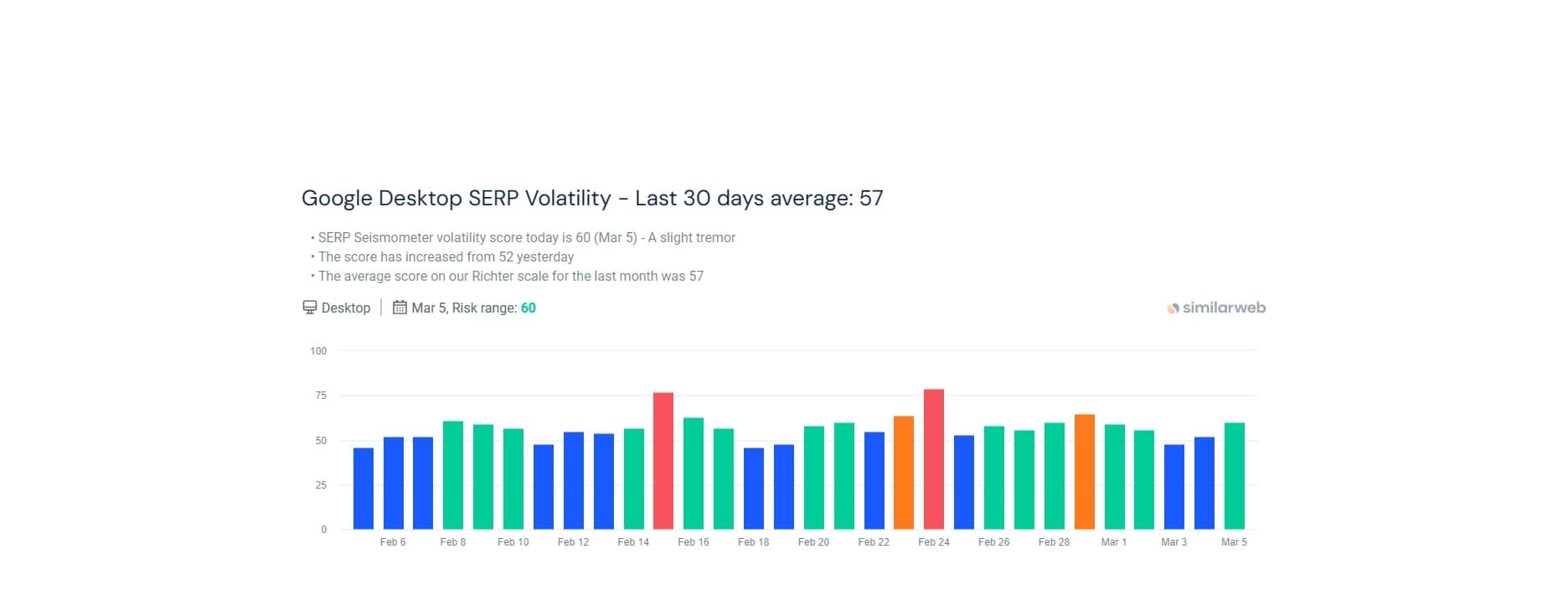Just before we published this article, Google released two major updates: the March 2024 Core Update and the March 2024 Spam Update. There will be more information on these updates in our news next month, but we thought we should take this opportunity to forewarn readers that these updates may cause a lot of ranking changes in the coming weeks. Announcing the Core Update, Google warns that “As this is a complex update, the rollout may take up to a month. It’s likely there will be more fluctuations in rankings than with a regular core update, as different systems get fully updated and reinforce each other”. Last month we reported on complaints from SEO experts about the increased number of spam results in Google search results. It is felt that these two updates will address these issues.
There was no official update to Google’s search algorithms in February, but there is still some interesting news to go through including updates to documentation for beginners and hints on the possible integration of AI to Google search results.

Unconfirmed updates to Google in February
Barry Schwartz once again highlighted various periods of volatility in Google search results that were not linked to confirmed updates. You can see his Search Engine Roundtable articles concerning possible updates on February 7th and 8th, 14th and 15th, 24th and 28th and 29th (the one he wished he’d called the “Leap Year Day update”).
These articles make reference to the fact that SEO experts are expecting a big Google update soon after remarks by Google’s Danny Sullivan in November 2023 that big improvements were on the way and that SEOs should “buckle up”. He again reiterated that promise in January on X and again in response to Syed Fahim Anwer on X on February 6th. [We now think that this update was released on March 5th 2024].
I appreciate the concern. I've shared a number of times that we have a range of improvements coming that I do believe will better deal with these and other issues. They are on the way in the near future.
— Google SearchLiaison (@searchliaison) February 6, 2024
Updated SEO Starter Guide
In January, we had news that the Search Relations team at Google were working on a rewrite of the SEO Starter Guide featured on Google Search Central. This new guide was published on February 2nd and was translated relatively quickly (for Google) to many other languages.
The new document is 4000 words long, a big reduction from the previous version. Although this guide does not mention WordPress or WordPress SEO plugins explicitly, it does mention, “CMS (Content Management Systems)” in the context of sitemaps, NOFOLLOW links on post comments, TITLE tags and image ALT tags. It tends to give the impression that your CMS will handle these things automatically, whereas in the case of WordPress you will need an SEO plugin like SEOPress to optimize these basic elements. Talking of us, you may also want to check out our new guide How (Not) to Mess up the SEO of Your First Website! that starts a series of articles for first-time web publishers.
For easy reference, here is the table of contents to Google’s new guide:
- How does Google Search work?
- How long until I see impact in search results?
- Help Google find your content
- Organize your site
- Make your site interesting and useful
- Influence how your site looks in Google Search
- Add images to your site, and optimize them
- Optimize your videos
- Promote your website
- Things we believe you shouldn’t focus on
- Next steps
A few days later, on February 6th, Google also updated guidelines on JavaScript SEO basics, fixing Search-related JavaScript problems, lazy-loading content and dynamic rendering.
New Google Search Team Videos
In parallel to new documentation, members of the Google Search Relations team have started to produce new YouTube content for beginners. The following videos were released in February but appear to be the start of a two series that will continue over the next few months.
- Gary Illyes: Introducing How Search Works, How Google Search crawls pages
- Martin Splitt: Structured Data for beginners.
Google Bard becomes Google Gemini
On February 8th, Google announced on the Keyword blog that Bard is now known as Gemini and will be available via the web as a free Pro version a paid Advanced version available in the Google One AI Premium plan for US$19.99/month. It will also become available in the Google App on smartphones.
We previously we thought of Gemini as the name of the Language Model behind both Bard, new Google Assistant features and the Search Generative Experience (SGE). This rebranding (just a year after Bard was announced) suggests that Google is moving towards a model where AI-generated responses won’t feature heavily in search results (like Copilot on Bing) but will be offered a separate application (like ChatGPT).
An interview with Google CEO Sundar Pichai published on Wired.com on February 8th entitled “Google Prepares for a Future Where Search Isn’t King” also seems to suggest that Gemini will evolve into an alternative to search rather than an add-on. Having paid versions of Gemini may also be the future of Google financially, providing a new revenue stream that may compensate for a loss in search ad revenues in the future.
It also highlights his concerns that Google Gemini is not yet reliable enough to replace search results because of hallucinations inherent in all generative AI technology.




